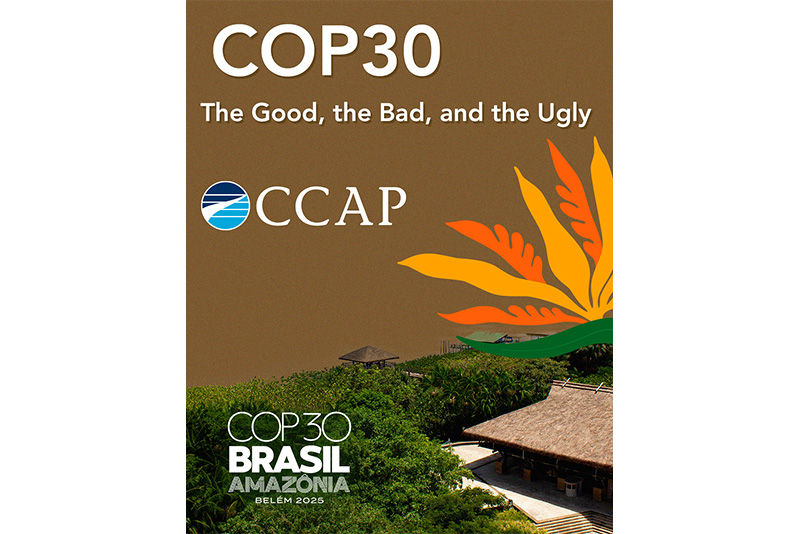Reducing Short-Lived Climate Pollutants through Improved Municipal Solid Waste Management
- Julie Cerqueira
- Mar 10, 2013
- 3 min read
Following carbon dioxide, short-lived climate pollutants (SLCPs), such as methane, black carbon, tropospheric ozone and hydrofluorocarbons, are the most significant contributors to anthropogenic climate change, with some gases exhibiting global warming potentials several factors greater than carbon dioxide. For example, over 20 years, methane is 86 times more potent than carbon dioxide in raising global temperatures. As the name implies, SLCPs have short lifespans – from a few days to less than two decades – thus their impact on atmospheric warming is most significant in the near-term. In addition to their climatic impacts, many SLCPs are also harmful to human health and the environment and contribute to urban smog. Because some of these pollutants, such as black carbon, have the greatest impact near their source, communities and regions that reduce SLCPs often directly benefit through improved air quality.
While it is absolutely necessary that the international community continue to scale-up efforts to reduce carbon dioxide, efforts to reduce SLCPs can be an important component of climate change mitigation strategies in the near-term, contributing to a comprehensive strategy to achieve a long-term solution to climate change.
CCAP’s Cooperation in Global Efforts to Reduce Short-Lived Climate Pollutants
In February 2012, the United Nations Environment Programme and the governments of Bangladesh, Canada, Ghana, Mexico, Sweden and the United States launched the Climate and Clean Air Coalition (CCAC) to reduce Short-Lived Climate Pollutants. As of March 2013, the initiative includes 55 states, multilateral institutions and organizations. The coalition was not envisioned to be a major source of project funds, nor is it intended to replace or divert attention away from efforts to reduce greenhouse gas emissions under the UNFCCC process. Instead, it seeks to leverage political will power in its partner countries to take real action to reduce SLCPs, and attract private sector investment.
Municipal solid waste landfills are the third largest source of global methane emissions. Additionally, sustainable solid waste management practices are important for improved human and environmental health. Accordingly, one of the coalition’s key initiatives is focused on municipal solid waste management. This initiative seeks to engage policymakers at the national level to develop broad solid waste management policies, and at the city level to help develop local action plans, build capacity and leverage private sector investment for viable waste management solutions.
Through its MAIN initiative, CCAP has been supporting the development of nationally appropriate mitigation actions (NAMAs) in the waste sectors in Colombia, Chile, Mexico and the Dominican Republic with the generous support of the Government of Canada. Building on this expertise, CCAP is supporting the coalition’s municipal solid waste initiative by working with two municipalities – Cali, Colombia, and Vina del Mar, Chile – to help improve local municipal solid waste management practices. In this first phase, CCAP is working directly with municipal officials to conduct assessments of the cities’ waste streams and to develop action plans that will help the cities identify and design waste management systems to meet their local needs.
From March 11–12, CCAP will also participate in the first meeting of the coalition’s municipal solid waste initiative, held on the periphery of the Global Methane Initiative’s Methane Expo in Vancouver, Canada. The meeting will be an opportunity for peer-to-peer sharing of best practices at the city level to facilitate an understanding of how to finance and attract public and private sector investments in municipal solid waste programs. Importantly, the meeting will be the first step to closer cooperation among this new network of cities and countries, and will hopefully set the stage for how the coalition can successfully support partner countries to cost-effectively move SLCP-reducing waste management policies from design to implementation.





Comments